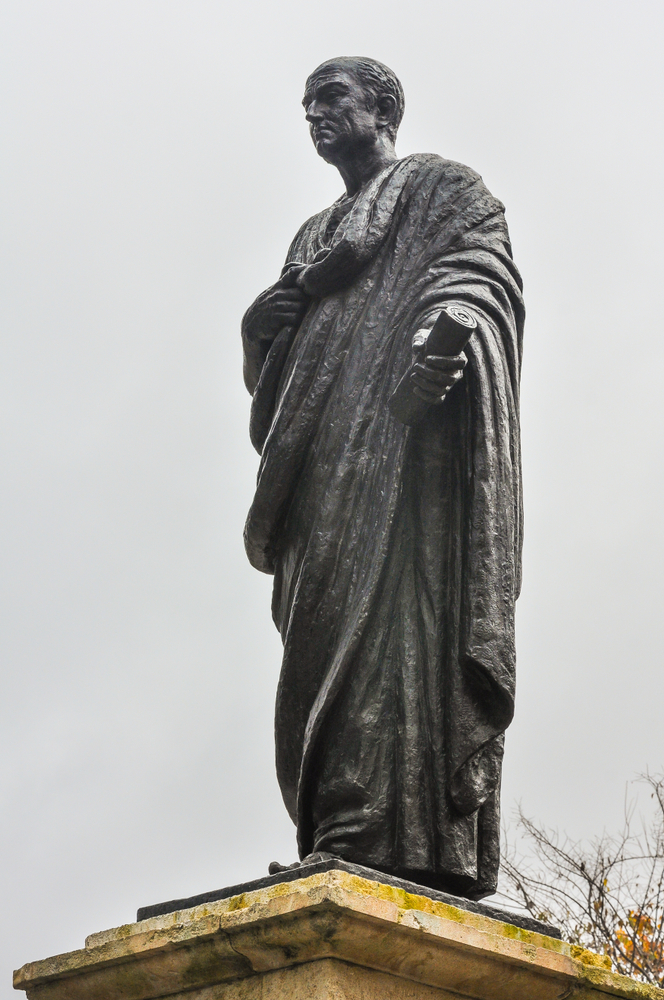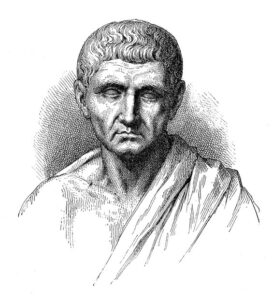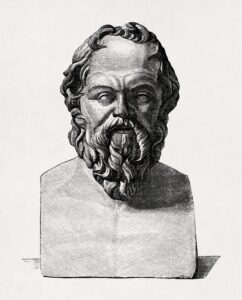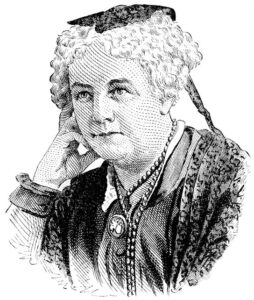This article presents the views of Professor David Harvey on class, nation and nationalism. Harvey’s recent video, published by Politics in Motion, touches on an important element of the Pinker-Mearsheimer debate about the Enlightenment. I review the relevant points here.
Introduction of the argument with relevant ideas from of the Mearsheimer-Pinker debate
In part two of John Mearsheimer’s case against the effectiveness of Enlightenment, he says that because people are social animals, they belong to tribes. We still belong to tribes. Today tribes are called ‘nations’. Because human beings are tribal, their identity is bound up with the tribe or nation. Their interests, their ways of looking at the world, and their views of justice are affected by this identification. And because people belong to different tribes, they often can’t reach political and moral consensus.
David Harvey’s relation to the argument
Mearsheimer was refuting the position of Steven Pinker, who argued that people are first and foremost individuals. Pinker thinks that because people are individuals, they ought to be able to use reason to reach a consensus. Here, David Harvey focuses on the idea of nations and nationalism in relation to capital. But his arguments have much to say about the social nature of human beings. This offers perspective on individualism versus the collective tendencies of human beings. It also urges caution in the exploration of nationalism. Harvey’s approach also requires us to rethink our understanding of environmentalism.
Nation, nationalism, capitalism, and the nation-state
How we are to understand the concept of the nation and the role of nationalism? Related to this is the question of what nationalism might do to our theoretical descriptions of how capitalism works. For example, what happens when we put the word ‘nation’ in front of the word ‘state’? We normally assume the nation-state has a different character from the bourgeois state.
It is also important to mention that there is some confusion as to what the argument might be about. For example, Marx in the Communist Manifesto, said the nation doesn’t matter when it comes to thinking about terms of class. The workers have no country, therefore, they wage class struggle. Talking about class struggle is different from talking about the nation. This problem was taken up after Marx’s time.
At that time there was an argument about how to understand the nation and the right of self-determination of populations. In 1915, Stalin wrote one of the original treatises on the role of the nation-state in politics. So did Rosa Luxemburg, Lenin, and others. The debate continues in Marxist circles. Harvey’s plan in this and subsequent videos is to discuss how and why the nation-state came about and also what its origins might be. He also wants to talk about its consequences.
Origins and consequences of the nation-state
In the early 1920s, Woodrow Wilson, President of the United States from 1913 to 1021, said the following.
Since trade ignores national boundaries and the manufacturer insists on having the world as a market, the flag of his nation must follow him and the doors of the nations which are closed against him must be battered down. Concessions obtained by financiers must be safeguarded by ministers of state, even if the sovereignty of unwilling nations be outraged in the process. Colonies must be obtained or planted in order that no useful corner of the world may be overlooked or left unused.
This is Wilson’s description of how relations between nations are connected together. Harvey says we need foundation concepts in order to discuss Wilson’s speech and this subject in general. And and these concepts don’t exist in the Marxist literature. Therefore Harvey uses concepts from another domain which has always been historically important. He derives three concepts from his own professional association as a geographer.
- Questions of the environment: We must distinguish between raw nature (untouched and unmodified by human hands) and the modified environment. We need to discuss the relationship between capital circulation and the environment, what capital absorbs from the environment, and what capital does to the environment, for example, building cities and new environments.
- Space and space-time: As he has pointed out previously, capital itself is concerned with production of space and new temporalities. Capital accelerates everything. Marx called this the annihilation of space through time. This is a dynamic place for looking at how spacial temporality is transformed. Once spacial temporality is transformed, we have to adapt to it. Capital is constantly transforming the space-time coordinates of its actions and at the same time reshaping the environment and space-time through its actions.
- Place: Place is not a favorite concept amongst Marxists. However, capital makes places. Capital is born in places and has a certain importance in terms of who we are and what we think about.
Aristotle’s influence on Marx
First, Marx was a classical scholar and a great admirer of Aristotle. Aristotle said human beings are political beings, or social beings. In Marx’s language of capital, we are political animals. This means we are always about forming collectives of some kind. Those collective forms of action are sometimes very extensive. As political animals, we have to think of the way in which capital is politicized and socialized in terms of its forms of circulation. (This aligns with Mearsheimer’s argument.)
Second, when Aristotle talked about the meaning of market exchange and started to analyze the nature of the market, he noticed that it rests on the ideas of equivalence and equality. These ideas are also stressed in Marxism. So the political definition of equality and equivalence becomes fundamental to any society based on commodity exchange. However, Aristotle was not able to develop a labor theory of value. This is due to the fact that in Greek society, all the work was done by slaves. Wage labor was one of the preconditions of Marx’s theory of value.
Finally, there was a concept that Marx did not take up from Aristotle, but which was foundational for how Aristotle thought. This is the concept of place. Aristotle said place is the priority or feature of all things. (Mearsheimer seems to have echoed Aristotle.)
Place, space and the environment: a geographer’s view
Harvey wonders if geography is about place, space and the environment, should we look at those things separately, or as a totality? He answers that he prefers to think back to the totality. A particular place exists in a certain spacial and temporal field, and has certain environmental qualities, both natural and humanly constructed. Therefore, the production of place is as important as the production of space, space-time and environmental transformations.
Since the field of geography is about the relations between space, place and the environment, we have to start to analyze the spacial moment, the environmental moment and the place movement. Since Harvey has previously talked about the environment and spacial temporality, he will concentrate here on the notion of place.
What Aristotle means when he says place is the priority or feature of all things is that all of us have a place of our origin. And that place, where we were born, how we are raised, plays a defining role in who we are. Therefore, we don’t have to start off with the abstractions of space-time and the question of whether or not the environment is human-made. We should start with the concreteness of the fact that we were born into a particular place. We have a certain set of experiences that shape us for much of our lives.
The dialectical view of place
When we say place is the first of all things, we mean that is where we begin upon our search to understand the world. That search will redefine not only who we are particularly, but how the world around us is made. It will also redefine what it is made of and how its transformations come back to transform us further. In other words, we take a dialectical view in which we say we change the world in order to change ourselves. One of the ways in which we change the world is by building different places. The concept of place becomes foundational in this way of thinking.
We see that this concept is very distinctive when we reflect on the nature of what place is about, how place works and all the environmental and cultural elements that are attached to it. Harvey contends for example, that in a place like the United States you could probably look at the postal zone someone comes from and have a pretty good idea of what sort of person they are. He has observed that when American students meet each other in Europe they ask each other where they are from. Place enters into the personality and the understandings of the world. We develop these understandings from our upbringing and other surrounding influences. So when Aristotle says place is the first of all things, he means that where we begin and how we experience that place is very critical.
Born in Gaza
The Documentary Born in Gaza was filmed shortly after the 2014 Gaza War. It examines how violence has transformed the lives of 10 Palestinian children who survived that war. At the time of filming, these children still didn’t understand how or why people did those things to them, or what it meant. It’s likely that those kids became the back bone of Hamas today. ‘That kind of treatment can ‘form the cadre for a different kind of political world’. Harvey says we should take this carefully into account because it is shaping future generations and laying the foundation of many things that will happen later.
So, when we say place is the first of all things, we mean it’s very likely that if you were born in Gaza and experienced these things, you would probably end up joining a political movement. Then the political animal would start to come out and lead to the formation of something like Hamas.
A word of caution
So, place is an important starting point. However, there is a problem with this starting point. This has to do with the fact that Aristotle is stating something very significant.
When Aristotle says place is the first of all things, what he’s doing is stating something that is very significant, but it is taken up in other things…the notion of place played a very important role in a lot of philosophical thinking.
Professor David Harvey
One of the people who took up Aristotle’s notion of place was the German philosopher Martin Heidegger. Heidegger was tolerant of Nazism, and he associated himself with it philosophically. This was true even after the end of the second world war. In fact, he never disavowed it. For this reason, Harvey Heidegger is a problematic figure. Heidegger is someone you may not want to listen to, in Harvey’s opinion.
However, he acknowledges Heidegger had a ‘distinctive’ notion of place. For example, Heidegger said that ‘Place is the locale of the truth of being‘. In this, he was close to Aristotle, but he took it deeper. He was saying there is a certain truth that attaches to the notion of place, and that truth is essential to being or becoming.
If you go on to interrogate where Heidegger was coming from, you will find that some of his passages are anti-capitalist. Harvey quotes a rather long passage about how distances in time and space are shrinking. (Marx would phrase it as ‘annihilation of space through time’.)
I’ve decided not to include Heidegger’s passage in this review. I’ve come across certain concepts and beliefs in the course of writing this blog that I consider dangerous. In this case, I take Harvey very seriously when he says we may not want to listen to Heidegger. We can’t be sure where certain harmful influences come from–whether from logical argument or from the general tone and atmosphere. It’s impossible to know which attributes have won people to this way of thinking in the past. So I chose not to include it here. I’m aware that this omission will cause many readers to go directly to the video to find out what he said. Of course they are free to do so, but at least I haven’t had to spend my time typing it.)
Heidegger’s similarities and differences with progressivism
According to Harvey, the passage in question is interesting in the way it talks about logical space and time in a Newtonian way. Also, it seems Heidegger was a great enemy of cosmopolitanism and market exchange. Many of his writings are anti-capitalist. But again, there is that note of caution. ‘There is something different in Heidegger’.
What Heidegger is doing is an ultimate critique. It’s very Marxist in its own way, but Heidegger is a very conservative figure. The theory of place has been dominated by Heideggerian thinking, and includes questions of dwelling, how we appropriate the world and work with the things around us. Due to this influence we do it in such a way as to appropriate the world to the self. We start to internalize much of what we find in the place we are in.
This is the kind of work which is these days coming back into left thinking. This is particularly the case with the effort to better understand indigenous culture and places. ‘There is the sense of feeling, the sensitivity to environmental variation, the closeness of things, which we can appropriate, how we understand them at the same time as those things can be very distant in mere physicality.’
Heidegger’s dwelling vs Lefebvre’s inhabiting
The idea of place is foundational for how we think about how people dwell. Dwelling was one of Heidegger’s main concepts. It was a critical feature for him. He did not use the term alienation, but he suggested that we can be alienated from nature, from space-time, from each other. Marx would understand it as general alienation from commercial culture, market related structures and capital accumulation. He would agree that this world, which is being built by capital, is a world full of alienation. And part of alienation is set up by an attempt to recuperate the realness and sensitivity that comes from dwelling.
But, what Heidegger does is claim that places are sacrosanct, that they are places of memory and encounters. This has been taken up on the left by Lefebvre, who studied Heidegger before his Nazi sympathies became well-known. Lefebvre has changed Heidegger’s term, dwelling into inhabiting. ‘We are who we are by virtue of the kinds of places we inhabit.’ And he is not talking about ‘planting yourself on top of things’, but about trying to wrestle with the reality of environmental conditions, space-time relations, etc., and trying to incorporate them in our collective sense of self. It is that which develops the concept of nation and nationhood.
According to Harvey the result is a form of environmentalism close to what Nazism was about. He thinks it has an ecological feeling, like Nazi youth camps in the forest. This isn’t as strange as it seems. Some writings of that time depicted Germany as one of the first ecological states in the sense of a close assemblage between the natural world and submission of one’s self to the conditions of life in that world.
The significance of Marx in this context
This is rather ‘bothersome’ in Harvey’s view. But he thinks it explains something significant about Marx. Marx understood there were nations and they needed to be talked about. He took up the idea of national self-determination and was particularly concerned with the case of Poland’s fight for independence. In fact, Marx was supportive of it, as he thought it might be a first step to socialism. In other words, Poland’s struggle was progressive.
On the other hand, Marx was not supportive of Czechoslovakian independence. The Polish people fought for independence from Tzarist rule. But in Czechoslovakia, the ruling class was trying to pull the people back into serfdom. This sort of judgement is characteristic of the Marxist approach.
Brexit and Scottish independence: a Marxist illustration
Harvey illustrates his own experience with this type of judgement with two recent events. One was Brexit, which he opposed, and the other was Scottish independence, which he supported.
After Jacques Delors’s term as president of the European Commission, The EU became more right-wing and reactionary. On this basis, Harvey would have supported Brexit. However, it turned out that the people behind the Brexit movement were reactionary right-wingers who were anti-immigrant and anti regulatory. So he didn’t support Brexit.
By contrast, in the case of Scottish independence the people were working against neoliberal governance in London. This government was robbing Scotland of North Sea oil and other depredations. Scottish independence called for a progressive welfare state where Scotland could control its own resources. In addition, it included everyone who lived in Scotland, not only people with Scottish heritage. By comparison, Heidegger would have limited it to those who could prove Scottish heritage.
Conclusion
Probably Harvey’s most important clarification or addition in regard to John Mearsheimer’s debate points is his conclusion that you can’t immediately say whether national identity is good or bad. It depends on whether people use it for positive or negative reasons. The main difficulty for analysis is that there is no real foundation for a theory of place. That is, aside from a better understanding of how places form and what they are about. Therefore, Harvey concludes that a theory of place is crucial. And this theory can’t be divorced from its context in space-time and environmental conditions.
There is a power in place-making
So, we have begun to recognize a certain power in place-making, and how the way places are made has a big impact on how culture forms. We should tale note that the world is made up of places. However, when you are talking about space-time, you are talking about an abstraction. It makes more sense if you talk about space-time in particular. For example the space-time coordinates of places in the world. For example the coordinates which make Lisbon like Lisbon and Barcelona like Barcelona. This would include a consideration of how much the politics of those places really matters. In addition, cases like the Scottish referendum illustrate the use the notion of place as a political lever to engage in certain kinds of action. Harvey provides another example, the experience of the Paris Commune.
The Paris Commune
Surveys were done with the people who had been part of the Paris Commune. Many of them said they were there because they were loyal to Paris. When the painter Courbet was put on trial, he gave as his reason for being in the commune that he loved Paris. Paris was a significant feature of political organization.
It is important to ask what is going on in terms of class struggle and what is going on in terms of national struggle. Can we distinguish between national interests and class interests? What’s the relations and between class and nation? In what sense are class interests and national interests related to each other? What is the national interest about and how does it work? These questions will be addressed in Professor Harvey’s next video.





